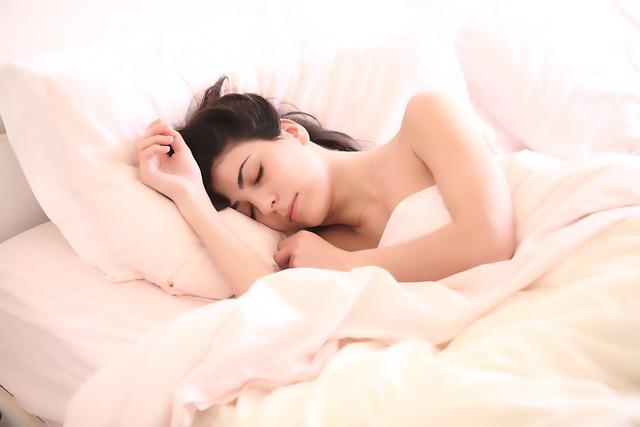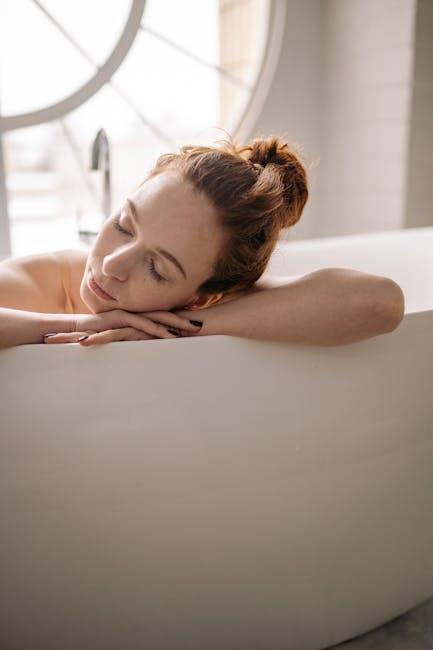In the bustling tapestry of modern life, where every moment is a balancing act between work, social commitments, and personal aspirations, sleep often becomes the elusive thread we struggle to weave into our daily routines. As a result, sleep hygiene has emerged as a buzzword, echoing through wellness blogs, health seminars, and lifestyle magazines. But amid the chorus of advice on blackout curtains, caffeine curfews, and digital detoxes, one might wonder: is sleep hygiene being overemphasized in our quest for the perfect lifestyle? This article delves into the realm of sleep guidance, examining whether the focus on these rituals truly holds the key to restful nights or if it has become an overstated mantra in the symphony of lifestyle advice.
The Origins and Evolution of Sleep Hygiene
Sleep hygiene, a concept that has steadily gained traction over the past few decades, traces its roots back to the early 20th century when researchers began delving into the mysteries of sleep. Initially, the focus was on understanding sleep disorders and their impact on health. Over time, the idea of cultivating better sleep habits emerged as a preventive approach to combat these disorders. This evolution was significantly influenced by the growing body of scientific literature highlighting the importance of sleep for overall well-being. As the digital age dawned, the need for sleep hygiene became even more pronounced, as modern lifestyles introduced new challenges like increased screen time and erratic schedules.
Key elements of sleep hygiene have remained consistent, although their emphasis has shifted to accommodate contemporary challenges. These elements include:
- Maintaining a consistent sleep schedule
- Creating a restful environment
- Limiting exposure to screens before bedtime
- Avoiding caffeine and heavy meals close to bedtime
- Incorporating relaxation techniques
While the principles of sleep hygiene have stood the test of time, their integration into lifestyle advice has sparked debate. Some argue that the meticulous focus on sleep hygiene may overshadow other aspects of holistic health, while others advocate for its foundational role in fostering a balanced lifestyle.

Balancing Sleep Hygiene with Real-Life Demands
In the intricate dance of modern life, achieving a perfect balance between maintaining good sleep habits and addressing the pressing demands of daily existence can often seem like a high-wire act. On one hand, sleep hygiene is championed as a cornerstone of overall well-being, encouraging routines such as consistent sleep schedules and creating restful environments. However, the reality is that life’s unpredictability—be it late-night work deadlines, social obligations, or familial responsibilities—often requires us to adapt and occasionally bend these ideal practices.
- Consistency vs. Flexibility: While sticking to a regular sleep schedule is beneficial, flexibility is key in navigating unforeseen circumstances without the added stress of breaking routines.
- Environment Adjustments: Creating a sleep-friendly space is crucial, yet sometimes transforming a noisy or cluttered environment into a haven of rest is a gradual process.
- Priority Shifts: Recognizing that priorities can shift daily allows us to allocate time for rest without feeling guilty for occasionally compromising on sleep hygiene.
Ultimately, the challenge lies in finding a personal equilibrium where the principles of sleep hygiene coexist harmoniously with life’s demands. It’s about crafting a lifestyle that respects the importance of rest while acknowledging that life doesn’t always conform to a perfect schedule.

Debunking Myths: What Really Impacts Sleep Quality
When it comes to achieving restful slumber, there’s a lot more at play than just keeping your bedroom dark and cool. While sleep hygiene often takes center stage in lifestyle advice, it’s crucial to understand the multifaceted nature of sleep quality. Here are some common misconceptions and the realities behind what truly influences your nightly rest:
- Myth: A consistent sleep schedule is the ultimate key to better sleep.
Reality: Although maintaining a regular bedtime can help, stress levels, diet, and even mental health conditions can significantly disrupt your sleep cycle. - Myth: Eliminating screen time before bed guarantees a good night’s sleep.
Reality: While reducing blue light exposure is beneficial, factors like caffeine intake and room temperature might have a more immediate impact on sleep quality. - Myth: A perfect bedroom environment ensures deep sleep.
Reality: The environment is important, but emotional well-being and daily physical activity are equally crucial for achieving restorative sleep.
Understanding these myths and their realities can empower you to take a more holistic approach to sleep, considering both environmental and lifestyle factors.

Practical Tips for Integrating Sleep Hygiene into Your Routine
Incorporating sleep hygiene into your daily life doesn’t have to be a daunting task. Here are some practical tips to help you weave these habits seamlessly into your routine:
- Set a Consistent Sleep Schedule: Try to go to bed and wake up at the same time every day, even on weekends. This helps regulate your body’s internal clock, making it easier to fall asleep and wake up naturally.
- Create a Restful Environment: Ensure your bedroom is conducive to sleep. Consider investing in blackout curtains, a comfortable mattress, and pillows that support your sleeping posture. Keep the room cool and free of distractions, like electronic devices.
- Mind Your Diet and Caffeine Intake: Be mindful of what you consume in the hours leading up to bedtime. Limit caffeine and heavy meals in the evening, as they can interfere with your ability to fall asleep.
- Develop a Relaxing Bedtime Routine: Engage in calming activities before bed, such as reading, meditating, or taking a warm bath. These rituals signal to your body that it’s time to wind down.
By making these small adjustments, you can enhance your sleep quality without feeling overwhelmed by the myriad of advice on sleep hygiene. Start with one or two changes and gradually incorporate more as you find what works best for you.
Wrapping Up
In the labyrinth of lifestyle advice, where every path seems paved with promises of better living, sleep hygiene stands as a beacon of well-intentioned guidance. Yet, as we have journeyed through the intricacies of its importance, one question persists: Is it truly the cornerstone of wellness, or simply a chapter in a much larger narrative?
As we tuck this exploration into the folds of our minds, let us not forget that the pursuit of well-being is as unique as the dreams we chase. Sleep hygiene, with its rituals and routines, may indeed play a pivotal role for some, while for others, it may be but a piece of a more complex puzzle.
the art of living well is a personal symphony, composed of notes that resonate with each individual’s needs and rhythms. Whether sleep hygiene is your crescendo or a subtle undertone, may you find harmony in the balance that suits you best.
And as you close this chapter, perhaps tonight’s slumber will be a little more informed, a little more intentional, and, most importantly, just right for you.

